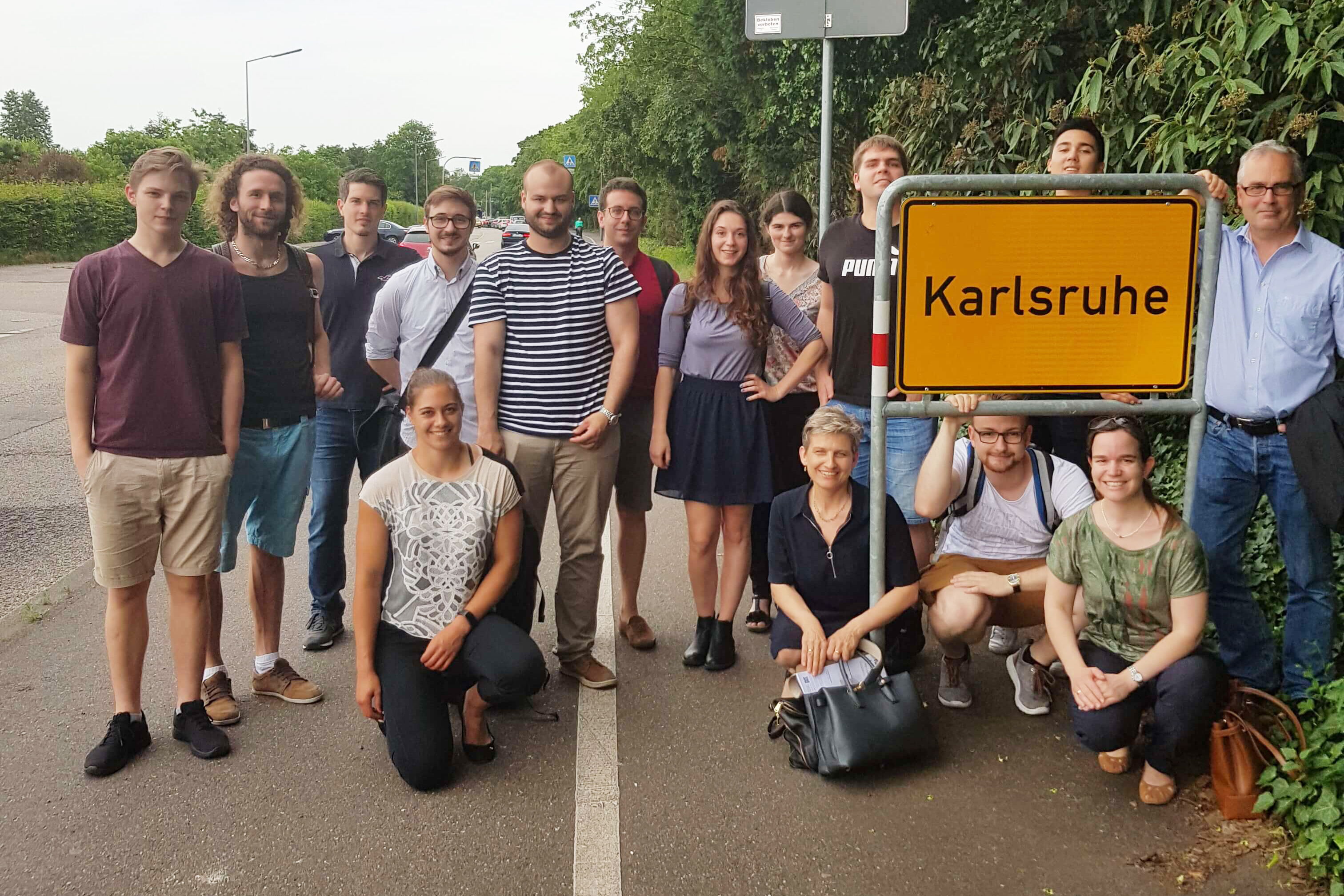Trinational seminar “Autonomous Driving in the Border Triangle”

Students and researchers from the law faculties of the Universities of Basel and Strasbourg as well as engineers, computer scientists and lawyers from the Karlsruhe Institute of Technology (KIT) have been working together on technology, regulation and acceptance of autonomous driving on a cross-border and interdisciplinary basis. Participant Sophie Haesen looks back on the trinational seminar:
This year’s trinational EUCOR seminar on “Autonomous Driving in the Border Triangle” took place May 28-30, 2018 under the auspices of Prof. Dr. Sabine Gleβ and Prof. Dr. Wolfgang Wohlers from the University of Basel and Prof. Dr. Armin Grunwald from Karlsruhe.
Students interested in the legal consequences of autonomous driving in the Upper Rhine region got together during a block seminar spread out over several days.
At the beginning of the seminar, the staff of the Forschungszentrum Informatik (Computer Science Research Center) at KIT gave the guests from abroad the opportunity to take a close look at the current field trial on autonomous driving and to be driven by an autonomous car across the learner’s obstacle course. The visit to the KIZ laboratory was also very interesting because it turns out that the different practical applications pose certain legal issues that the lawyers had already anticipated: For example, the question of how liability is to be assigned when an autonomous vehicle parks itself independently in a parking garage.
The first discussion panel – chaired by Armin Grunwald, head of the Institute for Technology Assessment and Systems Analysis (ITAS) at KIT – focused on the interdisciplinary debate on automated driving. It was agreed that new differentiations were needed in order to adequately assess the liability of people involved in autonomous driving. The need for discussion here naturally arose from the different perspectives of “programmers” and “lawyers.”
The last day began with a discussion about “dilemma situations,” which have also been repeatedly publicized, where in the case of an unavoidable accident not all people involved in such a situation can be saved. The public debate has been ignited above all by the fact that – when the driver disappears from the car – the steering “algorithms” then find a way out of the situation and must therefore choose an alternative course of action. Here, ethical and legal questions are closely interlinked and a satisfactory solution has not yet been found.
The last panel of the seminar dealt with issues around block chain technology, i.e. cryptographically secured linkages of database blocks, which are intended to prevent data manipulation and thus could also be of interest for evidence gathering.
As in previous years, the trinational Eucor – The European Campus seminar was very enriching for all participants. This applies not only to the learning effect of the preparatory meetings in which participants gradually familiarize themselves with the respective topics, but above all to the possibility of interdisciplinary cross-border exchange.
Sophie Haesen